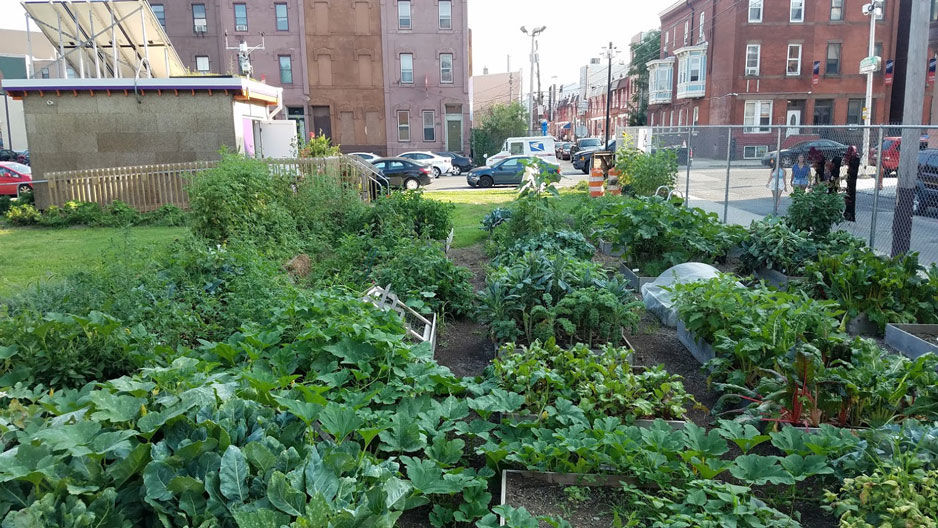Temple Community Garden helps combat food insecurity
A group of Temple students is working to reduce the impact of urban food deserts.

At the corner of Diamond and Carlisle streets, across from brick rowhouses sits a small garden with 30 raised beds that sprout turnip greens, bell peppers, beans and host of other nutritious foods.
Once one of the many abandoned lots that dot North Philadelphia, the corner sprung back to life four years ago, when it became home to the Temple Community Garden, established in 2009 thanks to the work of a student organization that provides an outlet for urban agriculture. The Carlisle and Diamond location is the garden's third location in the neighborhood.
In urban areas, green spaces like the Temple Community Garden help to reduce the impact of food insecurity by providing residents access to free fruits and vegetables. The green spaces also help build community.
“The food we grow goes right back to the our neighbors for free,” said Connor Caruso, environmental studies major and president of the student-run Temple Community Garden organization. “We wanted to be a part of the community and not just Temple students who live here. I’ve met a lot of new people and I may not have otherwise.”
During harvest months, residents routinely stop by the garden to pick up bags of fresh produce. Overall, the food produced by the garden can sustain 10 to 20 people after a normal harvest season.
“Although there’s a local grocery store in the area, produce can be expensive and the selection of fresh fruits and vegetables can be limited,” Caruso explained.
Throughout the year, the garden’s aim is to provide insight into sustainable agricultural methods while actively playing a role in enriching the surrounding community. The space includes a reservoir for stormwater, which is used to water the plants.
Last fall, the Temple Community Garden team planted five fruit trees, including a pawpaw, which is native to Pennsylvania. The trees are expected to yield fruit this spring.
“The pawpaw is a plant that is very nutrient-rich, but is not always accessible in urban areas,” Caruso said. “We wanted to bring the plant back to introduce students and the community to some of the trees that our region is known for.”
—Jazmyn Burton